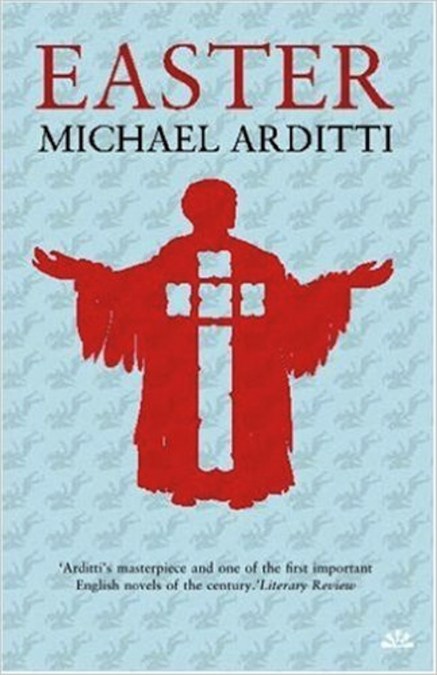Easter
On sale
1st April 2011
Price: £6.99
Winner of the Mardi Gras and Waterstone’s Book awards, longlisted for the Costa Novel award
‘It’s a delight to find a modern novel that takes religion and all the objections to it seriously as a subject: the rockpool of a London parish teems with all kinds of curious life’ Philip Pullman
‘Michael Arditti writes about Western Christianity, as it is manifest in the present Church of England, with pungency and satirical frankness. His style has Joycean echoes’ Muriel Spark
A Vicar and his congregation are caught up in a latter-day Passion story that will tear apart their lives.
The parish of St Mary-in-the-Vale is preparing for Easter. In his Palm Sunday sermon, the Vicar explains that Christ’s crucifixion and redemption are taking place every day. He little suspects that, before the week’s out, he and his entire congregation will be caught up in a latter-day Passion story which will tear apart their lives.
Michael Arditti’s magnificent novel is both a devastating portrait of today’s Church of England and an audacious reworking of the central myth of Western culture. Taking the form of a traditional triptych, it is at once intimate and epic, lyrical and analytic. Shocking events unfold against a backdrop of meticulously observed religious services. High Church ritual, evangelical revivalism and the ancestor-worship of the English gentry are all subjected to merciless scrutiny.
Newsletter Signup
By clicking ‘Sign Up,’ I acknowledge that I have read and agree to Hachette Book Group’s Privacy Policy and Terms of Use
Reviews
At a time when religion and religion-based hostilities are politically rife throughout the world, the novel of religion has an important place. Michael Arditti writes about Western Christianity, as it is manifest in the present Church of England, with pungency and satirical frankness. His style has Joycean echoes. Against a background of the conventional liturgies he places awful actualities in the lives of preachers and practitioners. Not explicitly, but in purpose and feeling, Easter is a novel on the New Testament theme of Christ's expulsion of the money-changers from the temple
As in his excellent earlier novels, The Celibate and Pagan and her Parents, Michael Arditti is deliberately provocative: he reads at times like the unlikely love child of Derek Jarman and Barbara Pym, presenting a story of parish backbiting against a bleak backdrop of lust, corruption and disease. But this is a novel of such moral seriousness that, before long, one reaches for grander models. In the scale of its aspirations and the savagery of its satire, Easter reminds me of Charles Dickens. I think it is Arditti's masterpiece
It's a delight to find a modern novel that takes religion and all the objections to it seriously as a subject: the rockpool of a London parish teems with all kinds of curious life
Michael Arditti's new novel, with its three sections and cast of thousands mirroring the time-honoured triptych, delivers a technically impressive, emotionally moving and deeply disturbing chronicle of death and resurrection. A profoundly and passionately religious novel
A huge book written with wit, compassion and a sharp critical eye. The writing is packed with daring imaginative leaps. Apart from Arditti's brilliant comic skills, there is a deep moral core to the book
Michael Arditti's brilliant novel. A latterday Passion story of great distinction
The author handles his material with considerable skill. Few other contemporary British writers of fiction are prepared to become immersed in metaphysical territory. Arditti's dialogue and imagery are memorable, and his eye for the quirks of Anglo-Catholicism recalls Barbara Pym at her best. His depiction of strong emotions - especially suffering - proceeds from deep feeling and is always honest

